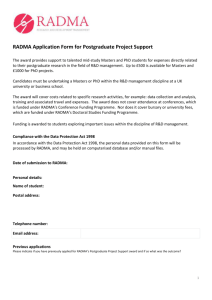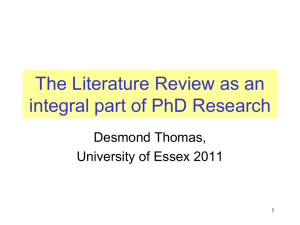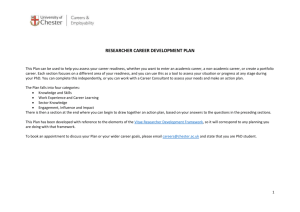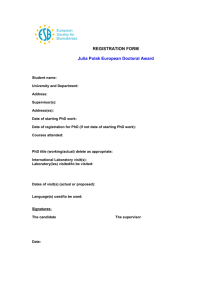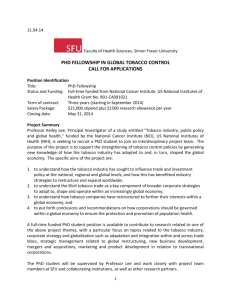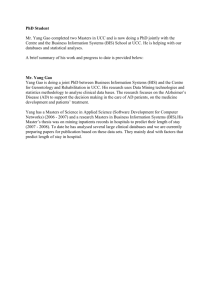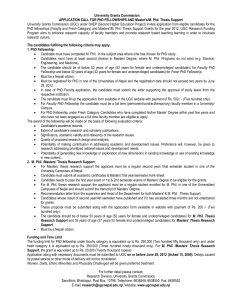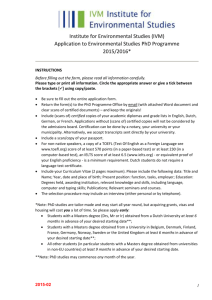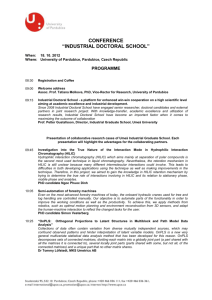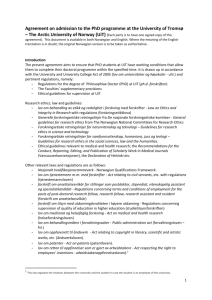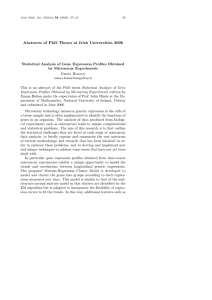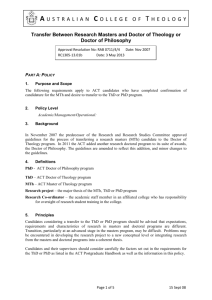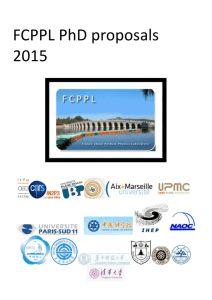case study of a GCU PhD graduate
advertisement
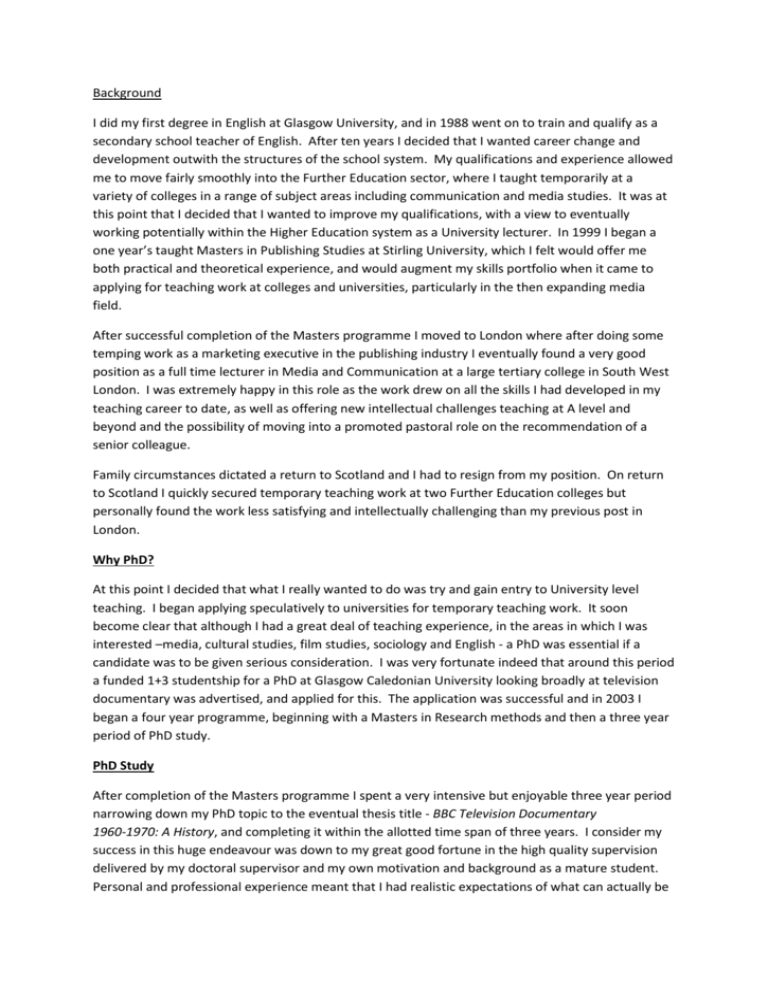
Background I did my first degree in English at Glasgow University, and in 1988 went on to train and qualify as a secondary school teacher of English. After ten years I decided that I wanted career change and development outwith the structures of the school system. My qualifications and experience allowed me to move fairly smoothly into the Further Education sector, where I taught temporarily at a variety of colleges in a range of subject areas including communication and media studies. It was at this point that I decided that I wanted to improve my qualifications, with a view to eventually working potentially within the Higher Education system as a University lecturer. In 1999 I began a one year’s taught Masters in Publishing Studies at Stirling University, which I felt would offer me both practical and theoretical experience, and would augment my skills portfolio when it came to applying for teaching work at colleges and universities, particularly in the then expanding media field. After successful completion of the Masters programme I moved to London where after doing some temping work as a marketing executive in the publishing industry I eventually found a very good position as a full time lecturer in Media and Communication at a large tertiary college in South West London. I was extremely happy in this role as the work drew on all the skills I had developed in my teaching career to date, as well as offering new intellectual challenges teaching at A level and beyond and the possibility of moving into a promoted pastoral role on the recommendation of a senior colleague. Family circumstances dictated a return to Scotland and I had to resign from my position. On return to Scotland I quickly secured temporary teaching work at two Further Education colleges but personally found the work less satisfying and intellectually challenging than my previous post in London. Why PhD? At this point I decided that what I really wanted to do was try and gain entry to University level teaching. I began applying speculatively to universities for temporary teaching work. It soon become clear that although I had a great deal of teaching experience, in the areas in which I was interested –media, cultural studies, film studies, sociology and English - a PhD was essential if a candidate was to be given serious consideration. I was very fortunate indeed that around this period a funded 1+3 studentship for a PhD at Glasgow Caledonian University looking broadly at television documentary was advertised, and applied for this. The application was successful and in 2003 I began a four year programme, beginning with a Masters in Research methods and then a three year period of PhD study. PhD Study After completion of the Masters programme I spent a very intensive but enjoyable three year period narrowing down my PhD topic to the eventual thesis title - BBC Television Documentary 1960-1970: A History, and completing it within the allotted time span of three years. I consider my success in this huge endeavour was down to my great good fortune in the high quality supervision delivered by my doctoral supervisor and my own motivation and background as a mature student. Personal and professional experience meant that I had realistic expectations of what can actually be achieved in an eighty-thousand-word thesis. I also treated the task of writing a thesis as a 9-to-5 job like all the others I had had, showing up to work every day and writing up my material conscientiously, however uninspired I felt from time to time. On completion I obtained in 2008 a one year, fixed-term teaching fellowship in the Film and Media department at Stirling University which I have just recently completed. For the first time since I completed my doctorate I can now take stock of where I would like to go next. While I would very much like to obtain a permanent lecturing post, and am actively seeking one, I am also open to other areas which might make for a good fit with my portfolio of skills, and I am in the process of researching suitable possibilities in the Civil Service and the commercial sector Transferable skills As a mature student with an extensive professional background I brought a lot of highly developed skills to the doctoral process from the workplace, which have served me well throughout my time as a doctoral student. I was already a skilled and confident communicator well accustomed to working in teams, or acting on my own initiative as required. I always considered management and delivery of the PhD as ultimately my responsibility and was very proactive throughout the process. I saw it as my job to schedule and organise my own workload, and use meetings with my supervisor to review completed work, rather than ask him what I should be doing next. I was always very aware that the project was under a tight time constraint and stuck very rigidly to agreed deadlines. What I did gain from the process was a thorough training as an academic researcher and writer – skills that I did not possess previously and which are essential for working within an academic department. These are skills I can now take with me to a variety of new workplace contexts. Messages As a mature student you are bound to have a different personal and professional profile to many research students in their mid to late 20s. It may make you feel that you are ‘out of step’ with others undertaking doctorates. This background brings with it however a lot of its own advantages, both in completing a thesis as I’ve outlined, and in the post-doctoral job search. The interview process and adapting to workplace culture are in particular areas in which the mature student is generally very experienced, and work colleagues recognise and are very appreciative of skills which you often don’t explicitly acknowledge you have. As a mature student you are also much more likely to be flexible and adaptable in your pursuit of career opportunities and willing to explore possibilities that a younger student specifically focused on an academic career might not.

